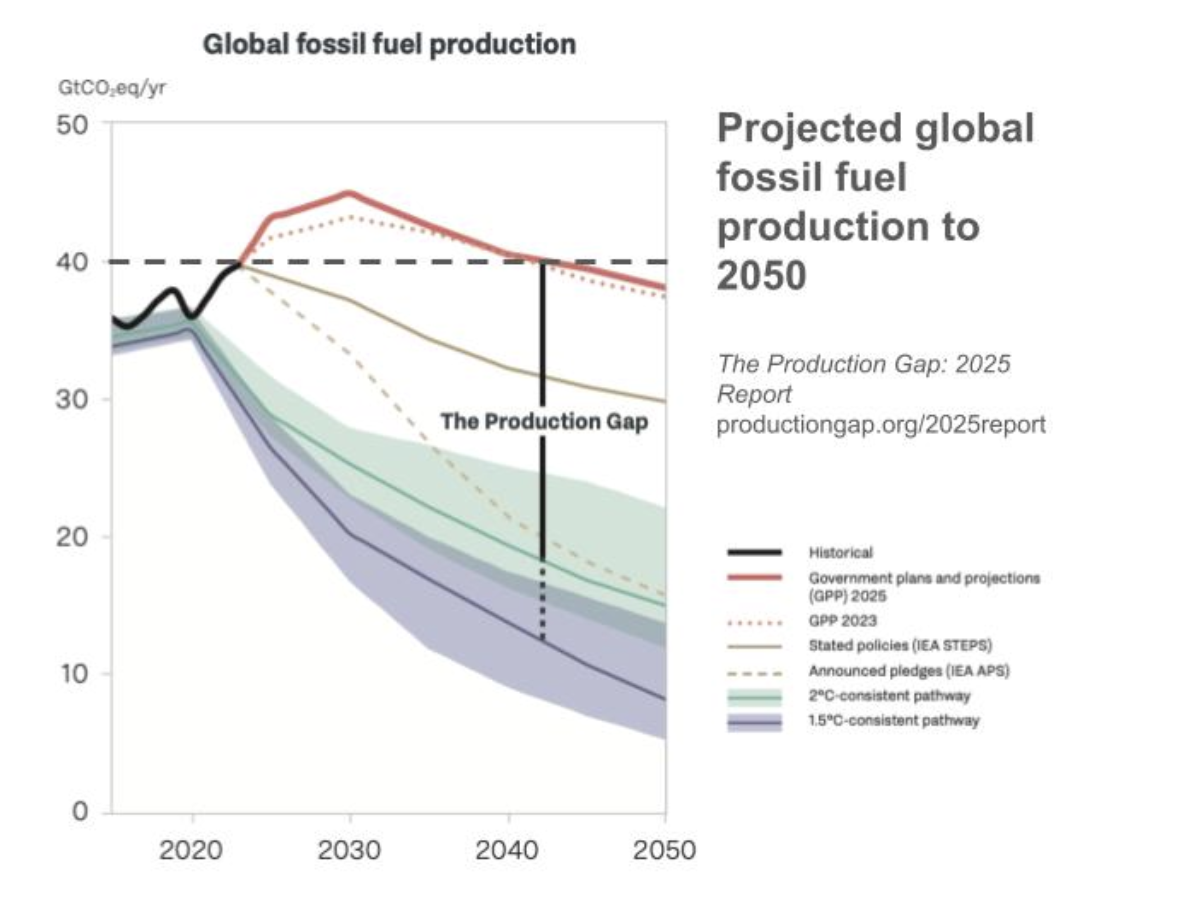 |
| Taken together, governments now plan even higher levels of coal production to 2035, and gas production to 2050, than they did in 2023. Planned oil production continues to increase to 2050. Source: Production Gap report 2025 |
by David Spratt
[This is an extract from Climate catastrophe: Is rapid cooling now essential?, published by Arena.]
‘To abandon facts is to abandon freedom. If nothing is true, then no
one can criticise power, because there is no basis on which to do so’,
wrote Timothy Snyder, a historian of Europe and fascism, in On Tyranny: Twenty Lessons from the Twentieth Century (2017). ‘If nothing is true, then all is spectacle. The biggest wallet pays for the most blinding lights’, he added.
And one of those great spectacles is climate politics, and the fossil fuel industry’s deep pockets.
According to Minister Chris Bowen, climate is a good news story of
wind, solar and batteries, and jobs, clean hydrogen and Australia as a
clean energy superpower. Ask him about faster-than-forecast physical
impacts, accelerating warming and imminent tipping points, and he will
respond that Australians don’t want bad news or climate fear. The
pattern is very clear in Bowen’s speeches, media and parliamentary
performances (Spratt, D., ‘The Albanese government has created a climate vacuum, and we will pay the price’, Pearls and Irritations, 25 July 2024).



















